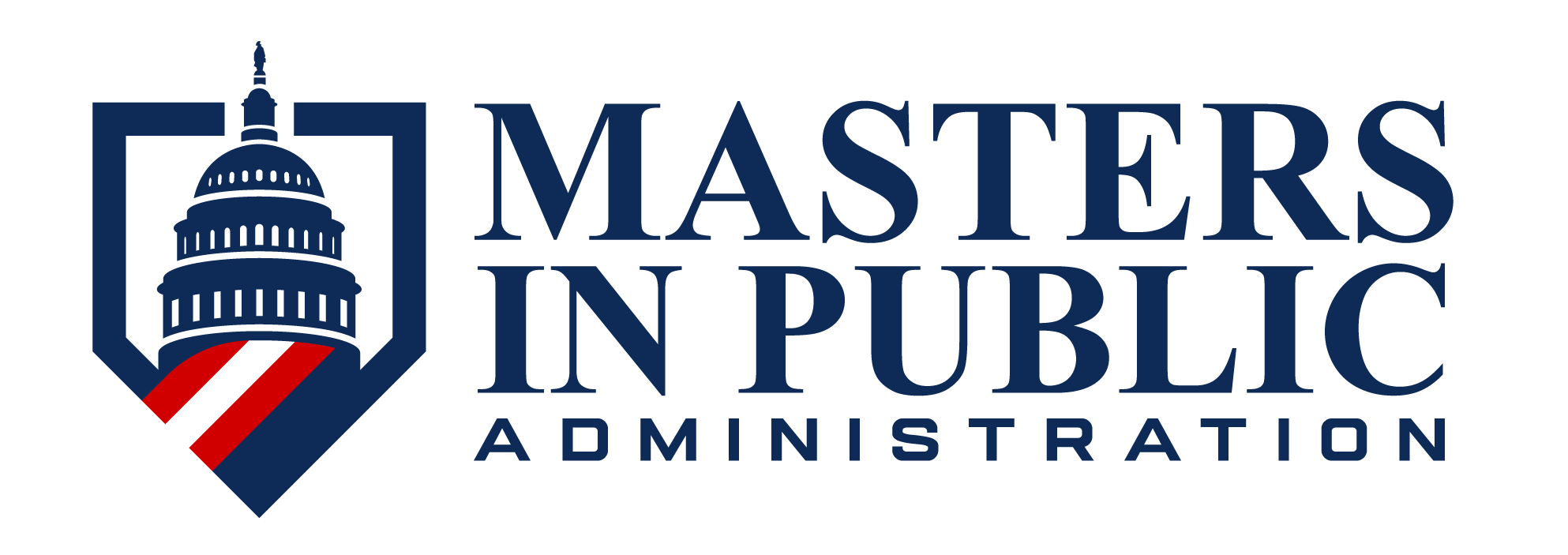Introduction
Pursuing a Master of Public Policy (MPP) in California offers numerous advantages that make it an appealing choice for students. California, as the most populous state and a leader in various policy areas such as environmental protection, technology, and social equity, provides a dynamic and rich environment for public policy studies. The state’s diverse population and complex challenges present unique opportunities for students to engage in meaningful, real-world policy analysis and development.
Key State Takeaways:
- Total MPP Programs Statewide: 12
- NASPAA-Accredited Programs: 0
- Annual Resident Tuition Average: $40,000 (PYR)
- Annual Non-Resident Tuition Average: $55,000 (PYR)
- Program Formats Offered: On-campus, hybrid, part-time
- Average Starting Salary: $70,000 – $80,000
MPP Programs in California
Unfortunately, there are no NASPAA-accredited public policy master’s programs in the State of California. However, there are numerous options in the state that offer flexible and comprehensive programs. Overall, obtaining an MPP in California equips students with the skills, connections, and experience necessary to excel in the public policy field while benefiting from the state’s unique and diverse opportunities. An overview of each program, including details on accreditation, credit hours, and modality, can be found here:
| Institution | Location | Accreditation | Credit Hours | Modality |
|---|---|---|---|---|
| California Polytechnic University | San Luis Obispo, CA. | WSCUC | 50 | On-Campus |
| Stanford University | Stanford, CA. | WSCUC | 40 | On-Campus |
| University of Southern California | Los Angeles, CA. | WSCUC | 48 | On-Campus |
| Sacramento State University | Sacramento, CA. | WSCUC | 36 | Online/On- Campus |
| Claremont Graduate University | Claremont, CA. | WSCUC | 32 | On-Campus |
| Pepperdine University | Malibu, CA. | WSCUC | 50 | Online/On- Campus |
| University of California – Berkeley | Berkeley, CA. | WSCUC | 48 | On-Campus |
| University of California – Los Angeles | Los Angeles, CA. | WSCUC | 80 | On-Campus |
| University of California – Riverside | Riverside, CA. | WSCUC | 90 | On-Campus |
| University of California – San Diego | San Diego, CA. | WSCUC | 92 | On-Campus |
| University of California – Irvine | Irvine, CA. | WSCUC | 72 | On-Campus |
| University of the Pacific | Sacramento, CA. | WSCUC | 44 | Online/On- Campus |
Stanford University
- Stanford, CA.
- 40 Credit Hours
- Campus
Program:
Masters of Public Policy (MPP)
Program Overview:
Stanford University’s MPP program, housed in the Public Policy Program within the School of Humanities and Sciences, is a rigorous two-year professional degree designed to equip students with advanced analytical, economic, and managerial tools to craft, assess and implement public policy. The program emphasizes microeconomics, statistics, economic policy analysis, and a two-quarter practicum, and supports concentrations in areas such as computational public policy, healthcare policy, science & technology policy, sustainability and energy policy, and urban & regional policy.
Unique Components:
- Advanced analytic core with practicum. The curriculum includes core courses such as Microeconomics (PUBLPOL 301A), Statistical Methods, Economic Policy Analysis, and a required two-quarter, ten-unit practicum to apply skills in a real-world policy setting.
- Joint‐/dual-degree emphasis across Stanford schools. The MPP is designed to integrate with joint degrees (e.g., MBA/MPP, JD/MPP, PhD/MPP) with credit sharing and coordinated curriculum across multiple schools.
Key Data Highlights:
- Format: On-campus
- Accreditation: WSCUC
- Credit Hours: 40
- GRE: Required
- Tuition: $43,230 (PYR)
- Acceptance Rate: N/A
- Enrollment: N/A
Other Considerations:
- Selective eligibility with internal student base focus. Unlike many MPP programs that admit broad external classes, Stanford restricts standalone external admissions; primarily current Stanford students, recent alumni (≤ 5 years), or those admitted to a joint program may apply.
University of California – Berkeley
- Berkeley, CA.
- 48 Credit Hours
- Campus
Program:
Masters of Public Policy (MPP)
Program Overview:
The MPP at the Goldman School of Public Policy at University of California, Berkeley is a two-year, full-time, STEM-designated professional degree designed to prepare students to address and influence complex public policy challenges. Students engage deeply in quantitative and analytical training (economics, decision-analysis, modeling, law), paired with structured experiential learning including a required summer internship.
Located in Berkeley, California, the program leverages the university’s interdisciplinary strengths and proximity to major policy institutions in the San Francisco Bay Area, with students able to draw electives across campus in areas such as energy & climate, social justice, technology policy, and health.
Unique Components:
- Mandatory summer internship bridging first and second year. Each MPP students completes a policy internship during the summer between the first and second years, working in government, nonprofit, or private sector policy roles to gain applied experience and often serving as the basis for their capstone project.
- Capstone project with client-based policy work. In the second year students undertake a “Capstone – Thesis Seminar” or independent capstone (PP205/PP299) which frequently involves work for a real client, yielding deliverables that may be adopted by the client organization.
Key Data Highlights:
- Format: On-campus
- Accreditation: WSCUC
- Credit Hours: 48
- GRE: Required
- Tuition: $35,304 (PYR)
- Acceptance Rate: 16%
- Enrollment: 120 students
Other Considerations:
- Flexible concurrent-degree and wide elective reach. The degree allows students to pursue concurrent degrees across other UC Berkeley schools (e.g., business, public health, engineering) and to take electives campus-wide, enabling customization in policy domains such as climate, technology regulation, health policy and data science.
University of Southern California
- Los Angeles, CA.
- 48 Credit Hours
- Campus
Program:
Masters of Public Policy (MPP)
Program Overview:
The Master of Public Policy (MPP) at USC Sol Price is a full-time, two-year professional degree that emphasizes rigorous training in policy analysis, economics, quantitative methods, and effective communication for leadership in public-service, nonprofit, and private sectors. Located in Los Angeles, the program leverages the broad resources of USC and its urban setting to engage students in hands-on policy experience,culminating in a year-long practicum project where students apply analytic skills to real policy questions in a partner organization.
The program reports strong alignment with social justice and innovation as key pillars, preparing graduates to tackle complex challenges in technology, governance, health, environment, and urban policy.
Unique Components:
- STEM-designated quantitative core. The MPP curriculum places a strong emphasis on quantitative and analytical methods including economics for policy, decision analysis, and methods courses, positioning graduates well for data-driven policy roles.
- Year-long practicum connecting theory to practice. A distinctive requirement is the policy practicum in which students work with real-world clients or organizations to apply skills learned, strengthening professional readiness and résumé value.
- Wide elective and dual-degree flexibility. Students can pair the MPP with other advanced degrees (e.g., JD, MBA, MUP) at USC or select from a broad range of electives that allow specialization in areas such as technology policy, environment & energy, and social innovation.
Key Data Highlights:
- Format: On-campus
- Accreditation: WSCUC
- Credit Hours: 48
- GRE: Not required
- Resident Tuition: $30,806 (PYR)
- Non-Resident Tuition: $61,300 (PYR)
- Acceptance Rate: N/A
- Enrollment: N/A
Other Considerations:
- Merit-based admission without GRE requirement. The admissions information for the program states that GRE/GMAT scores are not required, which lowers one entry barrier for qualified applicants.
Career Outlook
An MPP degree in California opens up a diverse range of career opportunities across various sectors, reflecting the state’s significant influence on public policy and administration. Graduates can pursue roles in government agencies, non-profit organizations, private sector firms, and academic institutions. Here are some job examples:
- Policy Analyst: Working for the government agencies, think tanks, or research organizations, policy analysts evaluate and develop policies on issues such as healthcare, education, and environment. In California, notable employers include the California Legislative Analyst’s Office and the Public Policy Institute of California.
- Program Manager: Many MPP graduates can manage public programs or initiatives in sectors like public health, social services, or urban development. They oversee project implementation, budgeting, and impact assessment. Examples include roles in state departments like the California Department of Public Health.
- Policy Consultant: Private consulting firms, such as those focusing on public sector or non-profit consulting, offer MPP graduate opportunities to advise organizations on policy strategies and program evaluations.
- Legislative Advisor: Working with state legislators or local government officials, these professionals provide expertise on policy development, analysis, and legislative strategy.
Salaries for MPP graduates can at times vary based on role, experience, and location. For instance, policy analysts in California can earn between $70,000 and $90,000 annually, while program managers might see salaries ranging from $80,000 to $100,000. Legislative advisors and consultants can earn higher salaries, often exceeding $100,000, depending on their expertise and the organization’s budget.
Frequently Asked Questions (FAQ)
Q: What is this state’s top MPP program?
A: The top MPA program in California is generally considered to be the University of Southern California (USC) Sol Price School of Public Policy. It stands out for its strong national reputation, extensive alumni network, and close ties to government and nonprofit sectors across the state. The program emphasizes real world application through some internships, research centers, and community partnerships, while offering specializations in areas like public management, urban planning, and nonprofit leadership. USC’s location in the Los Angeles also provides students with unique access to major public institutions and policy organizations, giving graduates a clear edge in both regional and national careers. The schools long history of excellence and focus on innovation continue to make it one of the most competitive and respected MPA programs in the country.
Q: Do California MPP programs offer joint or specialized degrees?
A: Yes. Many universities provide dual-degree pathways like UC Berkeley’s MPP/JD or MPP/MPH, UCLA Luskin’s MPP/MSW, and USC Price’s MPP/MBA. These options allow students to combine policy training with law, business, or public health, typically completing both degrees in three years instead of four.
Q: What can I do with an MPP from a California school?
A: Graduates often work in state and local government, policy consulting, nonprofits, research institutes, or tech and environmental policy sectors. UC Berkeley and the USC Price report 90–95% job placement within a year of graduation, with roles such as policy analyst, research associate, or government affairs manager.
Q: What are typical living arrangements for MPP students in California?
A: Most students live off-campus in shared apartments or graduate housing near campus. Major metro areas like Los Angeles, Berkeley, and Palo Alto have high living costs, so many of them commute from nearby suburbs. Expect to budget $1,500–$2,500 per month for rent, utilities, and basic expenses.
Q: Are there affordable or online MPP options in California?
A: Yes. Schools such as California State University, Sacramento and California Lutheran University offer hybrid or fully online public policy degrees with tuition often below $1,000 per credit hour. These are ideal for mid-career professionals seeking flexible, part-time study.
Q: What are the admission requirements for California MPP programs?
A: Applicants generally need bachelor’s degree with a minimum GPA of 3.0, a statement of purpose, two or three recommendation letters, and evidence of quantitative preparation (in statistics, calculus, or economics). The GRE is required at selective programs like UC Berkeley, while others such as Pepperdine or Mills College list it as optional.




